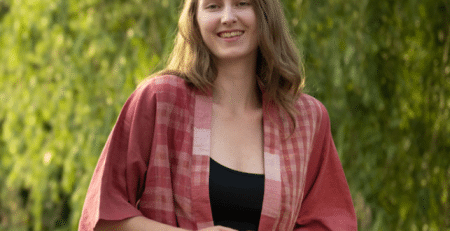Waste Not, Love More: The Ultimate Guide to a Zero Waste Valentine’s Day
Valentine’s Day is just round the corner. I personally think it’s amazing celebrating LOVE what could be better. Celebrated every year on February 14th as a day to honor love and affection between intimate companions. The origins of the holiday are not clear, but it is believed to have been inspired by a number of historical events, including the Christian martyrdom of Saint Valentine and ancient Roman fertility festivals.
Regardless of its origins, Valentine’s Day has become a cultural tradition that people around the world use as an opportunity to express their love and affection to their partners, friends, and family.
Valentine’s Day has also become a significant holiday for the retail industry, with many businesses offering special products and services for those looking to express their love on this special day. Over the years this is becoming a problem as we see enormous, mindless wastage of resources.
But as an eco-conscious, responsible business we are always on the lookout for ways to celebrate this special day in a sustainable and waste-free way. Here are some top tips for a zero waste Valentine’s Day that’s both romantic and environmentally friendly.
Give experiences, not things
Instead of giving your significant other something that might eventually end up in a landfill, give them the gift of an experience that you can both enjoy together. Whether it’s a picnic in the park, a cooking class, or a scenic hike, the memories you create will last a lifetime not to forget the moments spent together.
Make your own gifts
Though at times it can sound daunting, get creative and make your own gifts using materials you already have around the house. For example, you could create a handmade card using recycled paper and natural dyes or make a candle using beeswax and essential oils. Play around with colours and make a piece of art- painting using all your creative prowess believe me it not difficult have tried it and the outcome is something I was pretty proud of.
Give plants instead of flowers
This is my favourite. Flowers are beautiful, but they’re often grown using harmful chemicals and shipped long distances, which isn’t great for the environment. Instead, consider giving your loved one a potted plant that they can enjoy for years to come.
Opt for locally-sourced and organic treats
If you’re planning to treat your special someone to a delicious meal, make sure it’s made with locally-sourced, organic ingredients. Not only will this help reduce your carbon footprint, but it’ll also support local farmers and small businesses.
Dine at a zero-waste restaurant.
If you’re looking for a romantic dinner spot, why not find a zero-waste restaurant? These restaurants aim to minimize waste by using sustainable materials and reducing food waste. Plus, you’ll enjoy a delicious meal while doing your part for the planet.
Take a walk in nature
Valentine’s Day is all about spending time with the one you love, so why not take a walk in nature together? Whether it’s a local park or a nearby hiking trail, this is a great way to enjoy each other’s company and appreciate the beauty of the natural world and spend some much needed WE time.
In conclusion, there are many ways to celebrate Valentine’s Day in a waste-free way. By being mindful of the materials you use and the experiences you share, you can create a special and memorable day that you’ll both cherish for years to come. Happy Valentine’s Day!
P.S. What is ZERO WASTE ?
Zero waste is a philosophy and lifestyle that aims to minimize waste and the amount of resources used in order to protect the environment and reduce the negative impact of human activities on the planet. The goal of zero waste is to reduce waste to zero by using reusable, recyclable, and compostable materials and by reducing the amount of resources that are used in the first place. This includes reducing the use of single-use products, such as plastic bags, bottles, and disposable packaging, as well as increasing the use of sustainable and environmentally friendly products. Zero waste also involves changing the way we think about waste, viewing it as a resource rather than a problem, and working to find new ways to reuse and recycle materials in order to create a more sustainable future.
Author- Shayonti Chatterji
Image credit- Neesha Amrish Aeshaane










